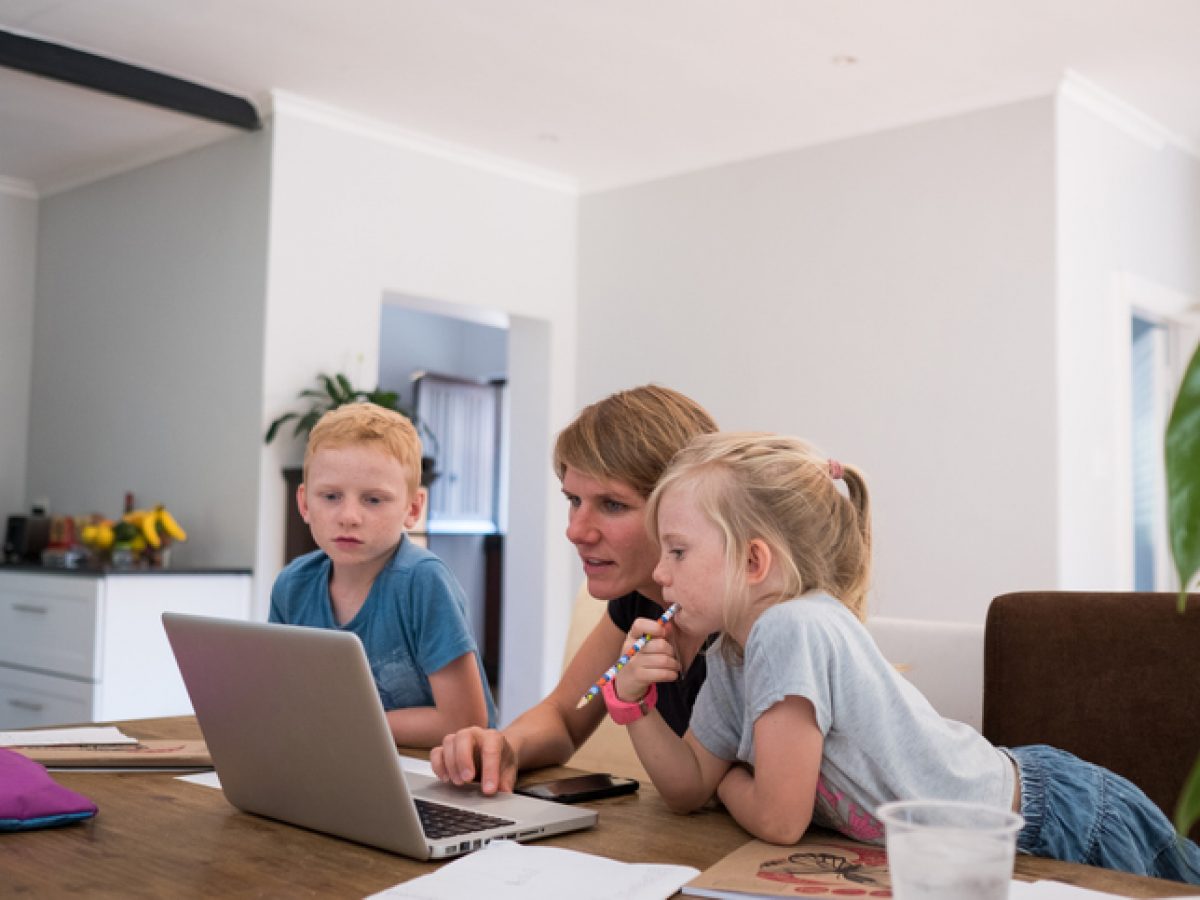Helping children cope
April 3, 2020

These unprecedented, ever-changing times are difficult for most adults to navigate, but what about the kids? How can we help the children in our lives cope with this new reality? Whether you believe your child is affected or not over this sudden lifestyle change, they certainly know things are different in their daily lives. It may be a parent who is suddenly working from home or a grandparent who stopped visiting—kids know things have changed.
Children often combine pieces of fact and fiction in their minds and worry or stress about things that could easily be explained. Encourage them to ask questions instead of just offering information. Learning what they know and what they fear is a great step in making them feel safe. The important thing to remember is to keep the lines of communication open between your family members. It’s critical that you use language that is direct and easy for a 5-year-old to understand—no matter your child’s age.
“It is important to talk with your child in an age-appropriate manner,” says Michelle Rose, M.D., a NCH Medical Group pediatrician. “Listen to their questions and fears, and answer their questions as completely as you can. Try to keep younger children from viewing news bulletins as they may not be able to understand the content. And always answer questions if your child is asking.”
Reminding children that just because we don’t know everything does not mean we know nothing. We can use the techniques of proper handwashing and social distancing to protect our own health. We can talk to grandparents on video calls to help limit their exposure. It’s important not to pretend that everything is OK when it isn’t. Children can pick up on parent’s concerns and manifest that into worse unfounded fears.
“Many kids’ schedules and routines are completely changed with school now online and they are home all day. Try to create a routine at home so they know what to expect,” explains Ronald Migalski, Executive Director of NCH Behavioral Health Services. “Not knowing what is next can cause much anxiety in kids, especially those with clinical diagnosis of anxiety, depression or on the autism spectrum.”
According to the American Academy of Pediatrics, here are some ways to help children deal with distress:
- Establish a predictable routine at home (avoid taking children out in public whenever possible during this time of social distancing)
- Encourage reading or healthy hobbies that create distraction
- Introduce journaling, blogging, art, music or other creative outlets to encourage sharing of feelings
- Add some exercise or yoga into each day
- Appropriate use of respectful humor―teach about puns and “Dad jokes” to create some light silly times
- Teach relaxation techniques of mindfulness, self-hypnosis and guided imagery
While most school-aged children are spending a lot of time on electronic devices for homework, and others for entertainment, be aware of their access to media reports and pop-up news alerts. It’s important that adults also limit their access to media and use judgement to visit trusted sites like the Centers for Disease Control and Prevention for periodic updates of information.
“Children need more than passive screen time to fill up their days at home,” suggests Dr. Rose. “They need interactive activities such as reading aloud, playing games, puzzles, coloring, music, and crafts to keep them invested.”
She adds, “Screen time should be kept to two hours or less after online educational activities are finished. Going outdoors for physical activity is always recommended as long as it can be done with proper social distancing.”
Even in a pandemic, this offers a wonderful opportunity to spend more time as a family. Share meals around the table and unplug when the family is together. This is a time your children won’t soon forget.